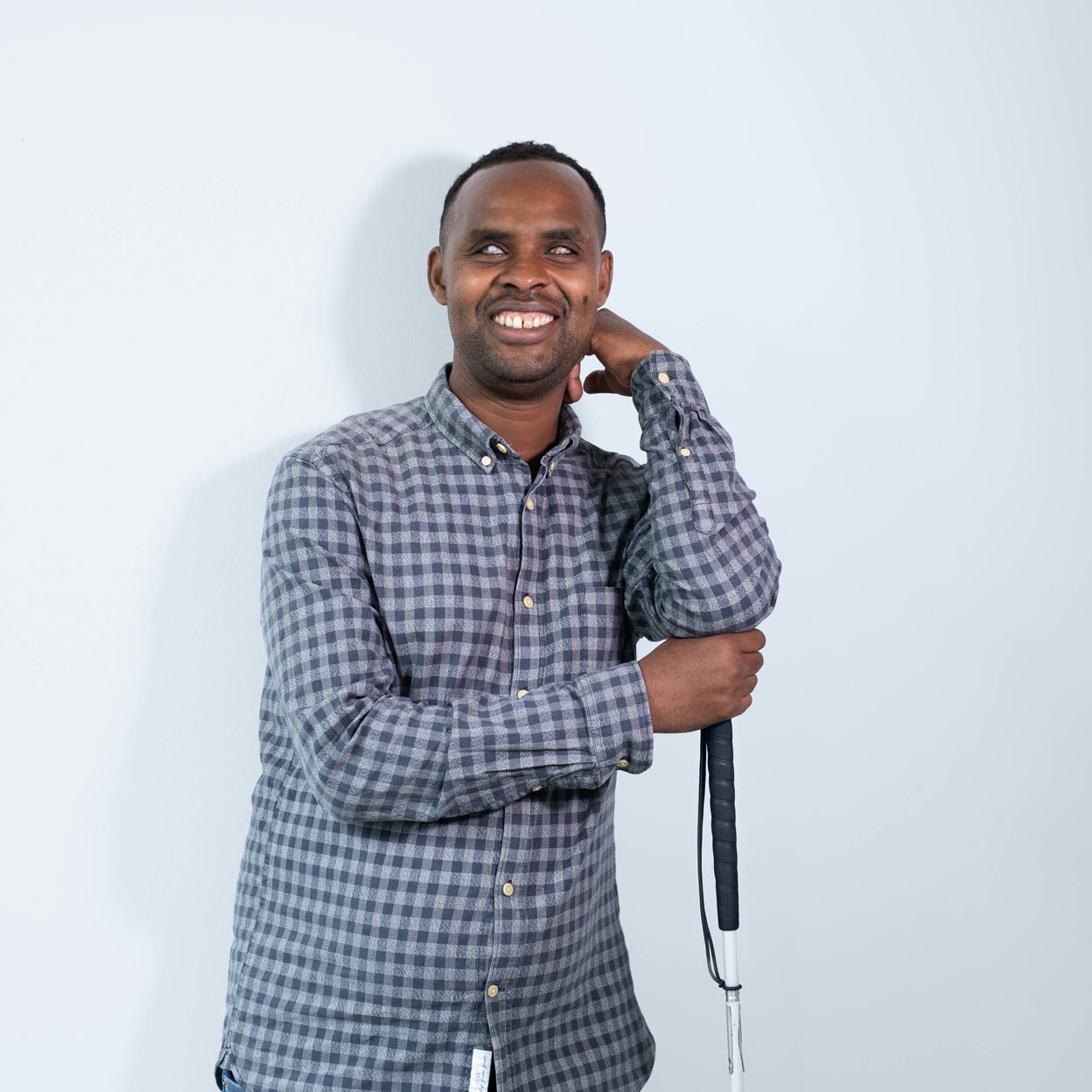Preparations
To turn your dream of studying in Germany into reality, you will need to take some preparatory steps in good time and deal with certain formalities. Let us explain which these are.

To turn your dream of studying in Germany into reality, you will need to take some preparatory steps in good time and deal with certain formalities. Let us explain which these are.

You will need to meet a number of conditions before you can enrol at a German higher education institution. First, you will require a recognised school leaving certificate that qualifies you for university. If you obtained your school qualifications in a EEA country or Switzerland, or at a German school abroad, no further checks will be necessary. You can apply directly to the higher education institution of your choice or via the uni-assist portal.
Prove equivalence of your qualification
If you completed school in a third country, you will have to prove when applying for a place that your qualification is equivalent to a German higher education entrance qualification. You can do this in advance by checking the DAAD’s database on admission requirements.
Your higher education institution will decide whether your qualification is sufficient. If you apply via the uni-assist portal, your qualification will be evaluated there in advance.
Studienkollegs help you prepare
If your qualification is not sufficient, you will have to take a so-called Feststellungsprüfung (university qualification exam) and attend one of the many Studienkollegs to prepare you for this exam.
Alternative: After successfully completing foundational studies in your home country, you can, under certain circumstances, also enrol directly on a degree course in Germany.
Check the requirements of your higher education institution
Also check whether your higher education institution may require anything else from you for your degree programme. Make sure to comply with all formal requirements. Find out which deadlines apply or whether online applications are possible.
Important note: All documents must be translated into German or English and the translation certified.
Contact the university of your choice in advance to get answers to all your questions relating to admission.
Most of your fellow international students, more than 80 percent, already speak German before commencing their studies. They may not always do so perfectly – but how much German will you actually need?
>80%
of international students already speak German when they arrive
You will need proof of language proficiency to be admitted to your higher education institution. Your university will decide what form this proof should take. You will have to show that you have a good command of the teaching language. Often this is German, though many bachelor’s, master’s and doctoral programmes are also taught in English.
Proving language proficiency
If your higher education institution requires you to have a knowledge of German before you enrol, you can provide proof by taking the recognised exams of the Goethe-Institut or the Test Deutsch als Fremdsprache (TestDaF). TestDaF courses are available in more than 100 countries around the world.
If you are already in Germany, you can also take the German language test for higher education entrance (DSH) at your higher education institution or Studienkolleg directly before commencing your studies to provide proof of your language proficiency level. The DSH comprises a written and an oral exam.
There are also many language and short courses in Germany to prepare you for your degree course.
To check the language requirements for your degree course in Germany and find out what exams you may need to take, visit www.sprachnachweis.de.
In addition to degree programmes that you can apply for directly, there are also degree courses that have a limited number of places available locally or nationwide (Numerus clausus).
If the restrictions are local, places will be assigned by the university in question, so you will need to apply there directly or via uni-assist.
In the case of courses with nationwide restrictions, places for students from the EEA or who have a German higher education entrance qualification are allocated by the Stiftung für Hochschulzulassung (Foundation for University Admissions).
The criteria are:
average grade
waiting time
higher education institution selection procedure (e.g. aptitude test, personal interview)
Anyone else can also apply for these degree courses via the higher education institution of their choice or via uni-assist.
Important note: degree courses with limited numbers of places may have significantly earlier application deadlines than unrestricted courses.
Information about restricted degree courses can be found at the Stiftung für Hochschulzulassung (only in German).
If you are from a non-EEA country and do not have a residence permit for studying in any other EU member state, you will need a student visa to enter Germany and then a residence permit for studying. There are three steps to complete in order to obtain a residence permit:
1
You will need:
2
You will need:
3
You will receive:
Source: BAMF
Students from many countries can also pick up their residence permit for studying from their local foreigners’ registration office after arriving in Germany.
The list of countries that require a visa can be found at the Federal Foreign Office.
The deadlines are often pretty tight. Which means in many cases that there is not enough time once you have received your letter of admission from the higher education institution to obtain a visa before your course of study begins. Or you have to take an entrance examination before being accepted. That is why it is possible to apply for a student application visa from your local German diplomatic representation before you have been admitted by your higher education institution. The student application visa allows you to come to Germany for up to nine months in order to apply for a degree course here.
Student application visa: You have nine months for the application and your preparations
You can also travel to Germany in order to prepare for your higher education course, for example by attending a language course or Studienkolleg or doing an internship. You will not be permitted to work in Germany during this time, however.
90
DAYS BEFORE COURSE STARTS Admission to degree course
77
DAYS BEFORE COURSE STARTS
Open blocked account/
health insurance
15
DAYS BEFORE COURSE STARTS Visa issued
6
DAYS BEFORE COURSE STARTS Scheduled arrival in Germany
2
DAYS BEFORE COURSE STARTS
Start date of visa/
entry date
Start of course*
15
DAYS AFTER COURSE STARTS Register at residents’ registration office
until at most90
DAYS AFTER ENTRY INTO GERMANY** if applicable, apply for residence permit
* When and how to matriculate will normally be explained in your letter of admission
**You will need to apply for a residence permit in good time while your visa is still valid
Average time taken by students from abroad before arriving in Germany; source: Stifterverband, Fintiba database
You can find your local German diplomatic representation on the website of the Federal Foreign Office.
Once you have arrived in Germany, you must report to your local residents‘ registration office within two weeks to receive your confirmation of registration. This applies both to international students and to Europeans from the EEA and Switzerland. The latter will also receive confirmation there of their right of residence.
To register, you will need:
If you entered Germany on a visa (or applied for one upon arrival), you will additionally have to report to the foreigners’ registration office. This is where you will be given your residence permit. In some cases you may have to present your proof of funding again and show that you have adequate health insurance.
Other things to be dealt with:
Very important: you must apply to have your residence permit extended in good time before it expires.
Your letter of admission does not make you a student: you only become one once you have actually enrolled (or matriculated) at your higher education institution. If it is not possible to enrol online or by post (e.g. in the case of restricted degree courses), you will have to make sure you are in Germany punctually to do so. Once the deadline expires, you will no longer be able to matriculate. At some higher education institutions, however, you may be able to apply (in good time) for an extension.
To enrol, you will normally need
It is best to check first with the International Office to find out exactly what you will need.
Carefully check the deadline for matriculation. It can differ from one institution to another.
Once you have enrolled, you will receive your student card and, if applicable, your semester ticket – generally by post.
When your course finally begins, you will probably find the Orientierungstage (orientation days) useful – these are organised by most higher education institutions in the first weeks of the semester. Special introductory events for all new international students, they give you the chance to get all the key information you need about studying and your higher education institution, as well as about dealing with formalities and local authorities. You can find out when these events will be taking place by checking with the International Office or your institution’s website.
Source: BAMF
Checklist for your degree course in Germany
18 MONTHS TO GO What do I want and what is possible?
15 MONTHS TO GO Do I meet all the requirements?
12 MONTHS TO GO What do I need for the application?
6 MONTHS TO GO How do I get to Germany?
3 MONTHS TO GO Where will I live?
2 MONTHS TO GO Countdown before departure
FINAL CHECK Important documents:
Originals/translated and certified copies:
AFTER ARRIVAL Important to-dos:
Source: DAAD

“In retrospect, I think it would have been a great help in my early days if I had had a basic knowledge of German before I landed here.”
Deginet Wotango Doyiso, 39, from Ethiopia is a doctoral student at the University of Cologne’s Faculty of Law.
“The Welcome Center was a great help, from writing a letter of support to the German Embassy in Ethiopia to finding a comfortable apartment for us here in Germany, finding kindergartens for my children, and advising me on other administrative issues.”
More infos: www.study-in-germany.de.